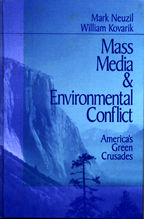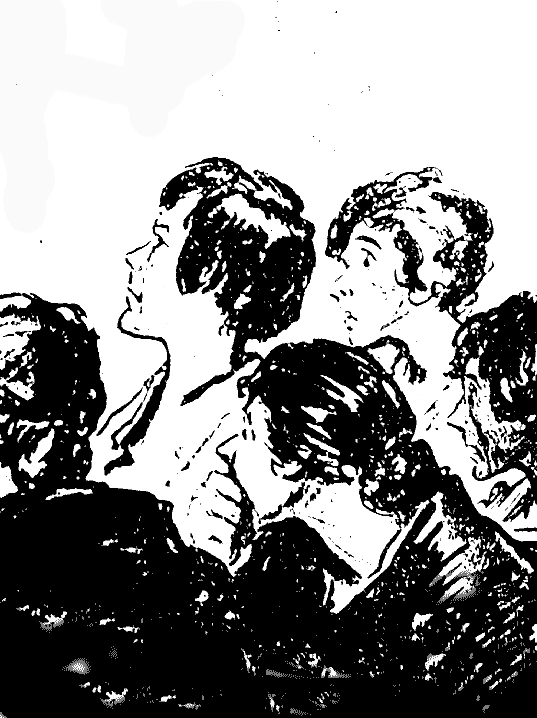The pundits split along predictably political lines when Fox News announced in April 2011 that the Glenn Beck sh0w would be ending. 
“This has caused great joy among some uber-liberals who object to free speech,” said Bill O’Reilly. Of course he had to leave, said John Stewart. “Thirty percent of his viewers have abandoned him, his audience’s median age is now dead of natural causes.”
Beck has been called a lot of things in his two-year run on national television, but he is most often compared to Father Charles Coughlin, a Catholic priest whose syndicated radio program reached 16 million listeners weekly at the height of his popularity in the 1930s.
Dana Millbank wrote in the Washington Post that the end of Glen Beck’s Fox TV show was similar to the way Coughlin was pushed off the radio in 1939.
Beck, in losing his mass-media perch, is repeating the history of Father Charles Coughlin, the radio priest of the Great Depression. Economic hardship gave him an audience even greater than Beck’s, but as his calls to drive “the money changers from the temple” became more vitriolic, his broadcast sponsors dropped him. He gradually faded from relevance as his angry themes lost their hold on Americans and his anti-Semitism became more pronounced.
Beck denied the comparison to the radio priest in 2010.
It’s a deep insult to be compared to [Coughlin]. But it’s hysterical because it’s … so ridiculously inaccurate, it doesn’t even make sense. Yes, Father Coughlin was against communism. Yes, he was on the radio, like me. Yes, he was against the sitting president, FDR. But it’s weird, because that’s where it ends — because he was initially a supporter of FDR. He was also wildly anti-Semitic — not me. He was for big unions. You know how I much I love the unions. And he’s also for — and this is my favorite this is his magazine, an original copy from the day — he’s also for “Social Justice,” the union man. Yes. That’s me in a nutshell, isn’t it?
Well, yes and no.
Like Coughlin, Beck’s comments have raised accusations of anti-semitism. The comparison is apt in other ways. Beck and Coughlin both fought job-creating programs, called democrats communists, threatened violence and spread bizarre conspiracy theories on the air.
Beck is wrong when he says Coughlin promoted “social justice” and he doesn’t. Social justice didn’t mean then what it does now. It was a code word back then, often used by right-wing, populist demagogues. Beck uses code words too, but not the same ones. He is very much from the same tradition as Coughlin. He’s a right-wing radio speaker appealing to deep seated fears and offering simplistic solutions. A demagogue.
Beck is correct in saying that Coughlin started out as a democrat, a union supporter and a champion of the oppressed working class. It’s true that, by the middle of the 1930s, Coughlin had become so disgusted with Depression-era capitalism that he embraced fascism and anti-Semitic rhetoric, for example, calling FDR’s “New Deal” the “Jew Deal.” In the summer of 1938, throwing his arm out in a Nazi salute, he told a rally of supporters: “When we get through with the Jews in America, they’ll think the treatment they received in Germany was nothing” (Manchester, 1974, p. 176).
The reasons that Beck and Coughlin left the air are not the same. For Coughlin, there was a particular incident that precipitated his exit. On the night of November of 9, 1938, Nazi party members destroyed synagogues and killed Jewish people across Germany in a pogrom called “Kristallnacht.” Coughlin tried to defend it, saying that persecution was only natural since Jews had been “numerous among radical leaders” on the left, and that many Christians had been persecuted by communists in Russia.
Following that broadcast, NBC and CBS networks announced they would refuse to allow “errors of fact” on the radio and would demand Coughlin’s advance scripts from that point forward. Coughlin refused, and continued his broadcasts through independent radio stations for another year. The Nazis trumpeted the censorship, saying Coughlin was not being allowed to broadcast the truth — an odd claim from a government that was imposing the most draconian censorship the world has ever seen.
We don’t know what the breaking point was for Fox News in 2011. Possibly it was a large combination of things, or, as a New Yorker columnist suggested, a desire to appear “less crazy” in the run-up to the 2012 elections.
We do know what was on the minds of the Federal Communications Commission, and the president, in the fall of 1938. As news from Europe became ever more threatening, a young theater director named Orson Wells staged a Halloween prank with a radio broadcast of the War of the Worlds that made millions of people think the country was being invaded. By Martians. The idea that a childish radio program could panic millions of people was an indication that more sinister activities could have a deeper impact.
A few weeks later, President Franklin D. Roosevelt attacked Coughlin (although not by name): “To permit radio to become a medium for selfish propaganda of any character would be shamefully and wrongfully to abuse a great agent of public service. Radio broadcasting should be maintained on a equality of freedom which has been and is the keynote of the American press.” (The New York Times, “Seeking a Code,” November 20, 1938, p. 174).
In FCC hearings in 1938, regulators talked about “the right of free speech and liberty of thought.” The FCC chairman said censorship was “impracticable and definitely objectionable,” and then called for self-regulation of radio as the only traditional American way to avoid a plague of innumerable and unimaginable evils.
The National Association of Broadcasters obliged with changes in its voluntary code of conduct in 1939, effectively taking Father Coughlin off the air. While controversial ideas would still be heard on the air, they would be part of news programs or balanced panel discussions. “This new rule closed the one loophole that remained in the networks’ and stations’ ability to censor controversial opinion: the dollar loophole,” said historian Michelle Hilmes. “The ability to pay was no longer [enough] . . . In fact, now broadcasters had an obligation to restrict all those outside the broad mainstream of political views” (Hilmes, 2006).
A few months later, in January of 1940, the FBI raided a Nazi spy ring in New York and arrested 17 armed saboteurs who were associated with Coughlin’s Social Justice group. As it turns out, the FBI had long been aware of the many links between Coughlin and the Nazi propaganda ministry in Berlin. They knew he had repeated word-for-word, propaganda screeds coming out of Berlin. And they knew he was secretly taking money from the Nazis. (Warren, 1995).
Outraged at the FBI, Coughlin tried to defend the “Social Justice” group on his now faltering radio show. But it was clear that he had totally misunderstood American public opinion. His presence on the air ended when the church told him that he would have to choose between priesthood and the radio.
If there is a similarity between Beck and Coughlin, it may be one of style, and perhaps also a misunderstanding of American public opinion as well.
However, the substance of Coughlin’s activities were far more subversive. No one has ever suggested that Glen Beck has taken money from foreign agents at a time when war seemed imminent.
So Coughlin comes off as a far more dangerous figure at a time when radio was not understood and war was breaking out across Europe. Like a number of American conservatives and industrialists at the time, Coughlin was betting on a fascist future, and he landed on the wrong side of history.
Not everyone who disliked Coughlin was happy with the way he was marginalized by network regulation. Some felt, at the very least, that Americans needed to understand what they would soon be fighting. “The American people are not boobs,” as one pundit picturesquely said (Saerchinger, 1940). They could be trusted to make up their own minds.
Or as Thomas Jefferson said in 1804:
No experiment can be more interesting than that we are now trying, and which we trust will end in establishing the fact that man may be governed by reason and truth. Our first object should therefore be to leave open to him all the avenues to truth. The most effectual hitherto found is the freedom of the press. It is, therefore, the first shut up by those who fear the investigation of their actions.
The experiment endures, in spite of Father Coughlin and a rather different character named Glenn Beck.
——-
Hilmes, Michelle. Only Connect: A Cultural History of Broadcasting in the United States (New York: Wadsworth, 2006), p. 129.
Saerchinger, Cesar. “Radio, Censorship and Neutrality,” Foreign Affairs, January 1940, 337.
Shannon, Warren. “Confronting the Nazis: Americans and German Propaganda,”
Ph.D. Dissertation, Washington State University, 1995.

 Revolutions in Communication
Revolutions in Communication Mass Media & Environmental Conflict
Mass Media & Environmental Conflict